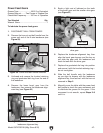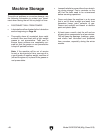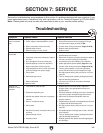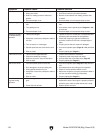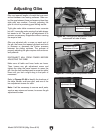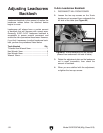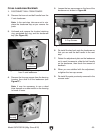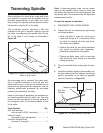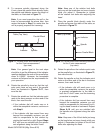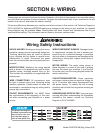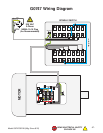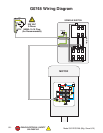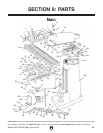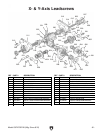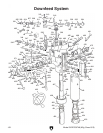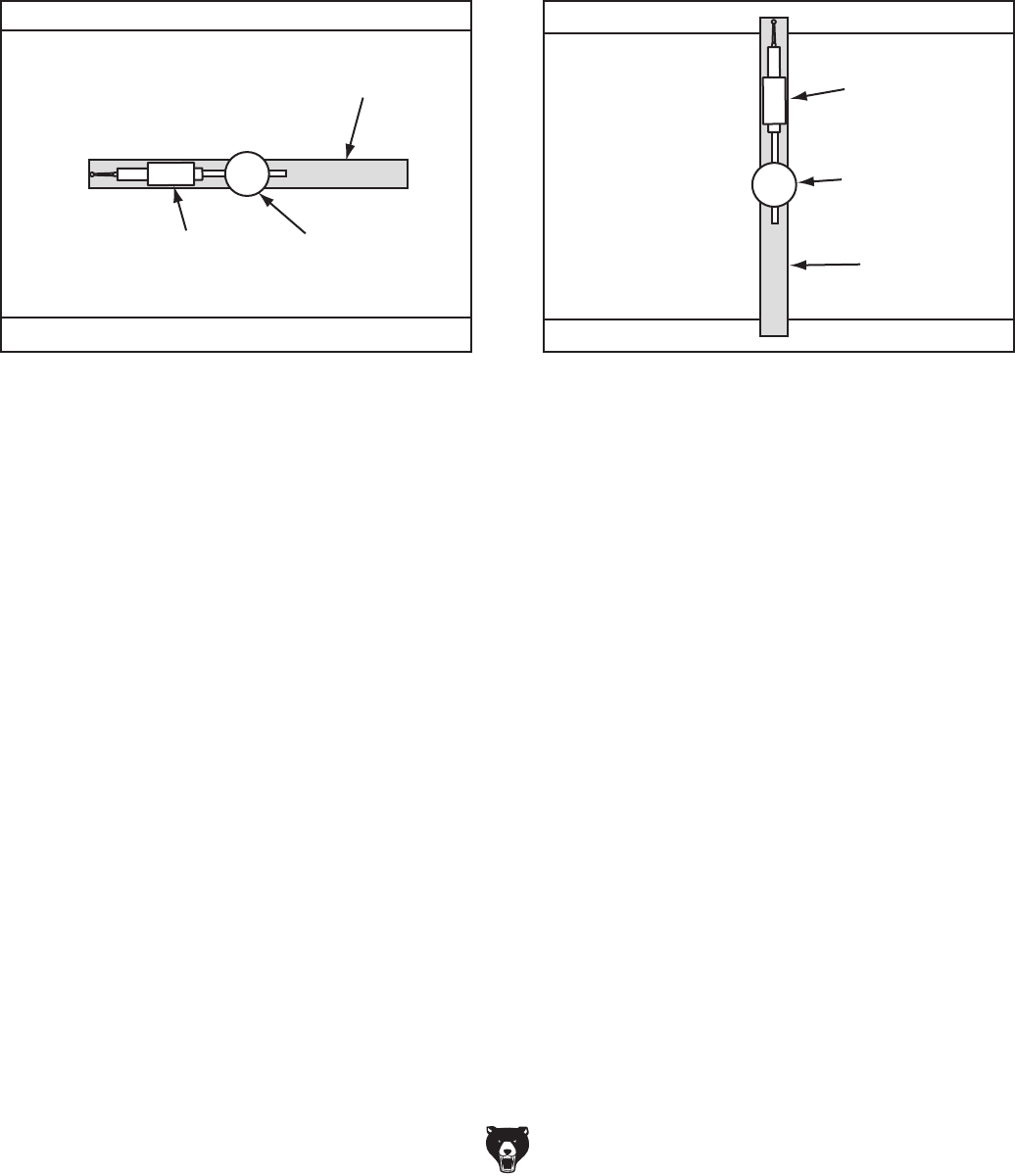
Model G0747/G0748 (Mfg. Since 8/12)
-55-
5. To measure spindle alignment along the
X-axis, place the parallel block directly under
the spindle and indicator across the length of
the table, as illustrated in Figure 71.
Note: If you must re-position the quill or the
knee to accommodate the above step, then
review the tasks in Step 2 to make sure the
mill is properly prepared for tramming.
Parallel Block
Indicator
Spindle
Table (Top View)
Figure 71. Parallel block and indicator positioned
for the X-axis measurement
(top view).
Note: Your general goal in the next steps
should be to get the difference of the indicator
readings between the ends of the parallel bar
down to 0.0005". However, the acceptable
variance will depend on the requirements for
your operation.
6. Rotate the spindle by hand so that the indi-
cator point rests on one end of the parallel
block, as illustrated in Figures 70–71, then
zero the dial.
7. Rotate the spindle so that the indicator point
rests in the same manner on other end of the
block, then read the dial.
— If the indicator dial still reads zero or is
within the acceptable variance, continue on
with Step 8.
— If the indicator dial has moved from zero
beyond the acceptable variance, you will
need to compensate for that amount by
rotating the head left or right. Repeat Steps
6–7 until you are satisfied with the spindle
axis alignment along the table X-axis.
Note: Keep one of the rotation lock bolts
just snug so the head does not move loosely
while you adjust it. Remember to tighten
all the rotation lock bolts after adjusting the
head.
8. Place the parallel block directly under the
spindle and across the width of the table, as
illustrated in Figure 72.
9. Rotate the spindle so the indicator point rests
on the parallel bar, as illustrated in Figure 72,
then zero the dial.
10. Rotate the spindle so that the indicator point
rests on the other end of the bar in the same
manner, then read the dial.
— If the indicator dial still reads zero or is
within the acceptable variance, the spindle
is precisely perpendicular to the table in
both the X- and Y-axes, and the tramming
procedure is complete.
— If the indicator dial has moved from zero
beyond the acceptable variance, you will
need to compensate for that amount by tilt-
ing the head forward or backward. Repeat
Steps 9–10 until you are satisfied with
the spindle axis alignment along the table
Y-axis.
Note: Keep one of the tilt lock bolts just snug
so the head does not move loosely while you
adjust it. Remember to tighten all the tilt lock
bolts after adjusting the head.
Parallel Block
Indicator
Spindle
Table (Top View)
Figure 72. Parallel block and indicator positioned
for the Y-axis measurement
(top view).



